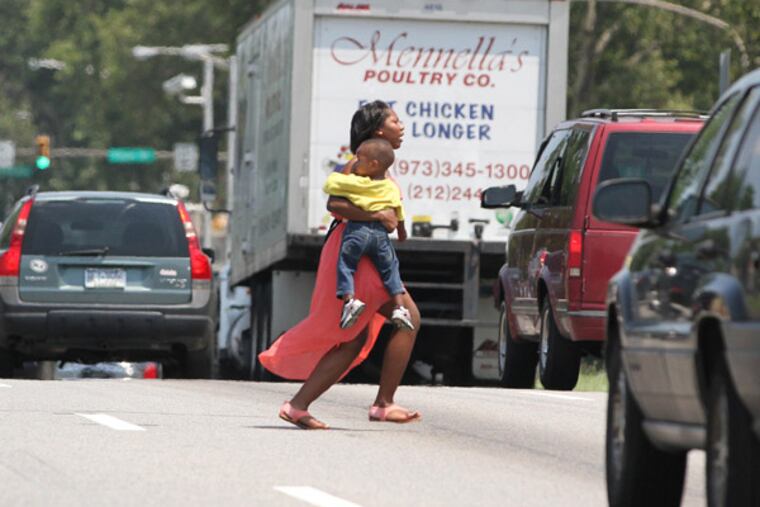Cameras to nab speeders urged for Roosevelt Blvd.
Speed-enforcement cameras would "dramatically change the driving culture" on Roosevelt Boulevard, Philadelphia Police Commissioner Charles H. Ramsey told state lawmakers on Monday, urging passage of a bill to legalize such cameras.

Speed-enforcement cameras would "dramatically change the driving culture" on Roosevelt Boulevard, Philadelphia Police Commissioner Charles H. Ramsey told state lawmakers on Monday, urging passage of a bill to legalize such cameras.
A relative of a woman and three children killed by a speeding car also called for speed cameras, saying pedestrians now risk their lives every time they cross the 12-lane Boulevard.
Ramsey and Tara Banks were among those testifying before the State Senate Transportation Committee in Center City, in support of a bill to authorize cameras that would generate $100 tickets for speeders on the notoriously dangerous highway in Northeast Philadelphia.
The cameras, which currently are not allowed in Pennsylvania, would photograph the license plates of vehicles moving faster than the permitted speed and generate a ticket that would be reviewed by police before being mailed to the vehicle's owner.
The bill's sponsor, Sen. Michael Stack (D., Phila.), said the cameras would not flag motorists who were within 10 m.p.h. of the posted speed limit and that motorists would not be assessed points on their driver's licenses or auto insurance.
Initially, Stack's bill would limit the cameras to Roosevelt Boulevard, where 150 people have been killed since 2001, including four this year.
The program could be expanded to other sites in Philadelphia and across the state, the committee's chairman, Sen. John Rafferty (R., Montgomery), said. The bill does not specify what agency would operate the cameras, though Stack suggested it could be the Pennsylvania Department of Transportation or the Philadelphia Police Department.
Ramsey, who brought speed-enforcement and red-light cameras to Washington, when he was police chief there, said cameras would aid police.
"Despite the most aggressive traffic enforcement by police officers, still only one violator can be stopped at a time," Ramsey said Monday. "When one violator is stopped, 10 more can speed by with impunity."
Mayor Nutter's transportation chief said the long-term solution would be to reduce the width of the road, making it easier for pedestrians to get across.
That will cost billions of dollars, Deputy Mayor Rina Cutler said, and won't happen for many years. In the meantime, Cutler said, "It is our belief that these cameras will dramatically reduce the speed of vehicles and the number of crashes in Philadelphia."
The cameras would be paid for and installed by a vendor, such as American Traffic Solutions, of Tempe, Ariz., which operates Philadelphia's red-light cameras, or a unit of Xerox Corp., of Norwalk, Conn., which has been awarded a contract to take over Philadelphia's red-light camera program and which ran a troubled speed-camera program in Baltimore.
The Baltimore camera program had so many problems with errors that it was suspended last year by that city. In one well-publicized incident, a AAA road-service truck in Baltimore was ticketed for doing 57 m.p.h. when it was actually stopped.
AAA was not invited to testify at Monday's hearing, but a spokeswoman said the club had several concerns about the proposed Pennsylvania program, including how the camera company would be paid and how camera locations would be selected.
Opponents of the cameras contend the devices are used to make money for states and municipalities, not to improve safety.
Michael Fagin, of the Insurance Institute of Highway Safety, said studies in the United States and abroad showed fatalities dropped up to 44 percent with the use of speed cameras.
The impetus for the bill was an accident in July in which Samara Banks, 28, and three of her sons died trying to cross the boulevard near Second Street. They were struck by a speeding vehicle that police said was drag racing.
Two drivers were arrested and charged with murder in the deaths.
Tara Banks, a cousin of the victims, told legislators "you never think it's going to be a member of your family."
"It takes a few cycles of the light to get across, especially with small children," she added, "if you're going to get a loaf of bread or get the bus."
215-854-4587
@nussbaumpaul